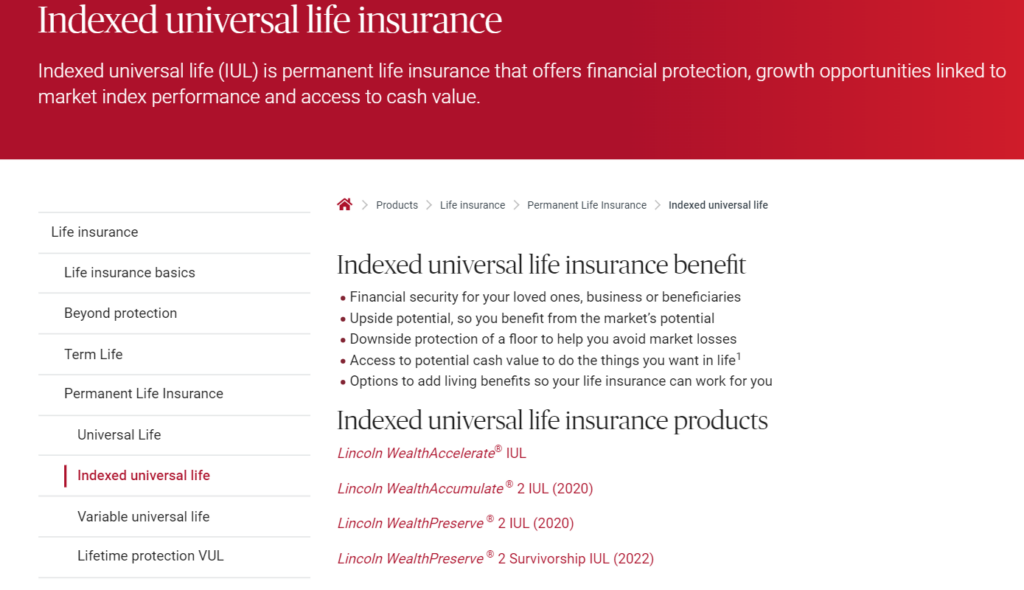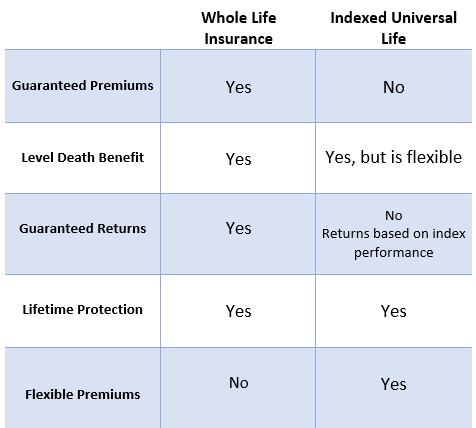All Categories
Featured
Table of Contents
Do they contrast the IUL to something like the Vanguard Total Amount Supply Market Fund Admiral Shares with no load, an expense proportion (ER) of 5 basis points, a turn over proportion of 4.3%, and a phenomenal tax-efficient document of distributions? No, they compare it to some horrible actively managed fund with an 8% tons, a 2% EMERGENCY ROOM, an 80% turn over ratio, and a terrible document of temporary funding gain circulations.
Shared funds usually make annual taxable distributions to fund proprietors, even when the value of their fund has actually decreased in value. Common funds not just call for revenue reporting (and the resulting annual taxation) when the mutual fund is going up in value, yet can also impose revenue taxes in a year when the fund has gone down in value.
That's not how common funds function. You can tax-manage the fund, harvesting losses and gains in order to minimize taxable distributions to the financiers, yet that isn't somehow going to alter the reported return of the fund. Only Bernie Madoff kinds can do that. IULs prevent myriad tax obligation catches. The ownership of common funds might call for the mutual fund owner to pay projected tax obligations.

IULs are easy to position to ensure that, at the owner's fatality, the beneficiary is not subject to either income or inheritance tax. The same tax decrease strategies do not function nearly too with mutual funds. There are numerous, frequently expensive, tax obligation traps connected with the timed buying and marketing of mutual fund shares, traps that do not relate to indexed life Insurance policy.
Chances aren't extremely high that you're going to be subject to the AMT due to your mutual fund distributions if you aren't without them. The rest of this one is half-truths at best. As an example, while it is true that there is no revenue tax obligation as a result of your successors when they inherit the earnings of your IUL policy, it is also true that there is no income tax due to your heirs when they acquire a common fund in a taxed account from you.
Term Insurance Vs Universal Life
There are better methods to prevent estate tax concerns than acquiring investments with low returns. Mutual funds may trigger revenue tax of Social Protection benefits.
The growth within the IUL is tax-deferred and may be taken as tax totally free revenue using financings. The plan owner (vs. the common fund supervisor) is in control of his or her reportable income, hence enabling them to lower or even eliminate the tax of their Social Safety and security advantages. This is great.
Here's one more very little concern. It holds true if you get a common fund for say $10 per share just before the circulation day, and it disperses a $0.50 circulation, you are after that going to owe tax obligations (probably 7-10 cents per share) despite the truth that you haven't yet had any type of gains.
Yet ultimately, it's truly about the after-tax return, not just how much you pay in tax obligations. You are mosting likely to pay even more in taxes by using a taxable account than if you buy life insurance policy. But you're also most likely going to have more money after paying those taxes. The record-keeping requirements for owning shared funds are substantially extra complicated.
With an IUL, one's documents are kept by the insurance provider, duplicates of yearly declarations are mailed to the proprietor, and distributions (if any kind of) are completed and reported at year end. This set is likewise kind of silly. Of training course you should maintain your tax documents in instance of an audit.
Eiul Insurance
All you have to do is shove the paper into your tax obligation folder when it reveals up in the mail. Hardly a reason to buy life insurance policy. It's like this person has never ever purchased a taxable account or something. Shared funds are frequently component of a decedent's probated estate.
Additionally, they undergo the hold-ups and costs of probate. The profits of the IUL policy, on the other hand, is constantly a non-probate circulation that passes outside of probate directly to one's named recipients, and is therefore not subject to one's posthumous lenders, unwanted public disclosure, or similar hold-ups and prices.
We covered this set under # 7, but just to recap, if you have a taxable mutual fund account, you need to place it in a revocable trust (or perhaps easier, use the Transfer on Fatality classification) in order to stay clear of probate. Medicaid incompetency and life time revenue. An IUL can provide their owners with a stream of earnings for their whole life time, no matter the length of time they live.

This is valuable when arranging one's affairs, and converting possessions to revenue before an assisted living facility arrest. Mutual funds can not be converted in a similar manner, and are often taken into consideration countable Medicaid properties. This is one more silly one promoting that bad individuals (you recognize, the ones that need Medicaid, a federal government program for the bad, to pay for their nursing home) should use IUL as opposed to common funds.
Index Insurance Definition
And life insurance policy looks horrible when compared fairly against a pension. Second, people who have cash to acquire IUL over and beyond their pension are mosting likely to need to be horrible at handling cash in order to ever get Medicaid to spend for their nursing home expenses.
Persistent and incurable ailment biker. All plans will enable a proprietor's easy access to cash from their policy, commonly waiving any type of surrender charges when such people endure a major ailment, require at-home care, or come to be constrained to a retirement home. Common funds do not give a similar waiver when contingent deferred sales costs still relate to a mutual fund account whose owner needs to sell some shares to fund the expenses of such a remain.
Is Indexed Life Insurance A Good Investment
Yet you reach pay even more for that benefit (cyclist) with an insurance plan. What a good deal! Indexed global life insurance gives survivor benefit to the recipients of the IUL owners, and neither the owner neither the recipient can ever lose money because of a down market. Shared funds offer no such guarantees or death advantages of any kind.
I absolutely don't require one after I get to monetary self-reliance. Do I want one? On standard, a purchaser of life insurance policy pays for the real price of the life insurance coverage advantage, plus the costs of the plan, plus the profits of the insurance company.
Universal Life Insurance Quote Calculator
I'm not entirely sure why Mr. Morais threw in the whole "you can not lose money" once more here as it was covered rather well in # 1. He simply wished to duplicate the finest selling factor for these points I intend. Once again, you do not lose small dollars, but you can lose actual dollars, in addition to face major chance expense due to reduced returns.

An indexed global life insurance policy policy owner may exchange their plan for a totally various plan without activating income taxes. A common fund proprietor can not move funds from one mutual fund firm to an additional without marketing his shares at the previous (therefore activating a taxable event), and repurchasing brand-new shares at the latter, usually based on sales fees at both.
While it is true that you can exchange one insurance plan for another, the factor that individuals do this is that the initial one is such a terrible plan that even after purchasing a brand-new one and undergoing the early, unfavorable return years, you'll still come out ahead. If they were marketed the right policy the very first time, they should not have any type of desire to ever trade it and go via the very early, negative return years again.
Latest Posts
Equity In Life Insurance
Iul Insurance Companies
Death Benefit Options Universal Life